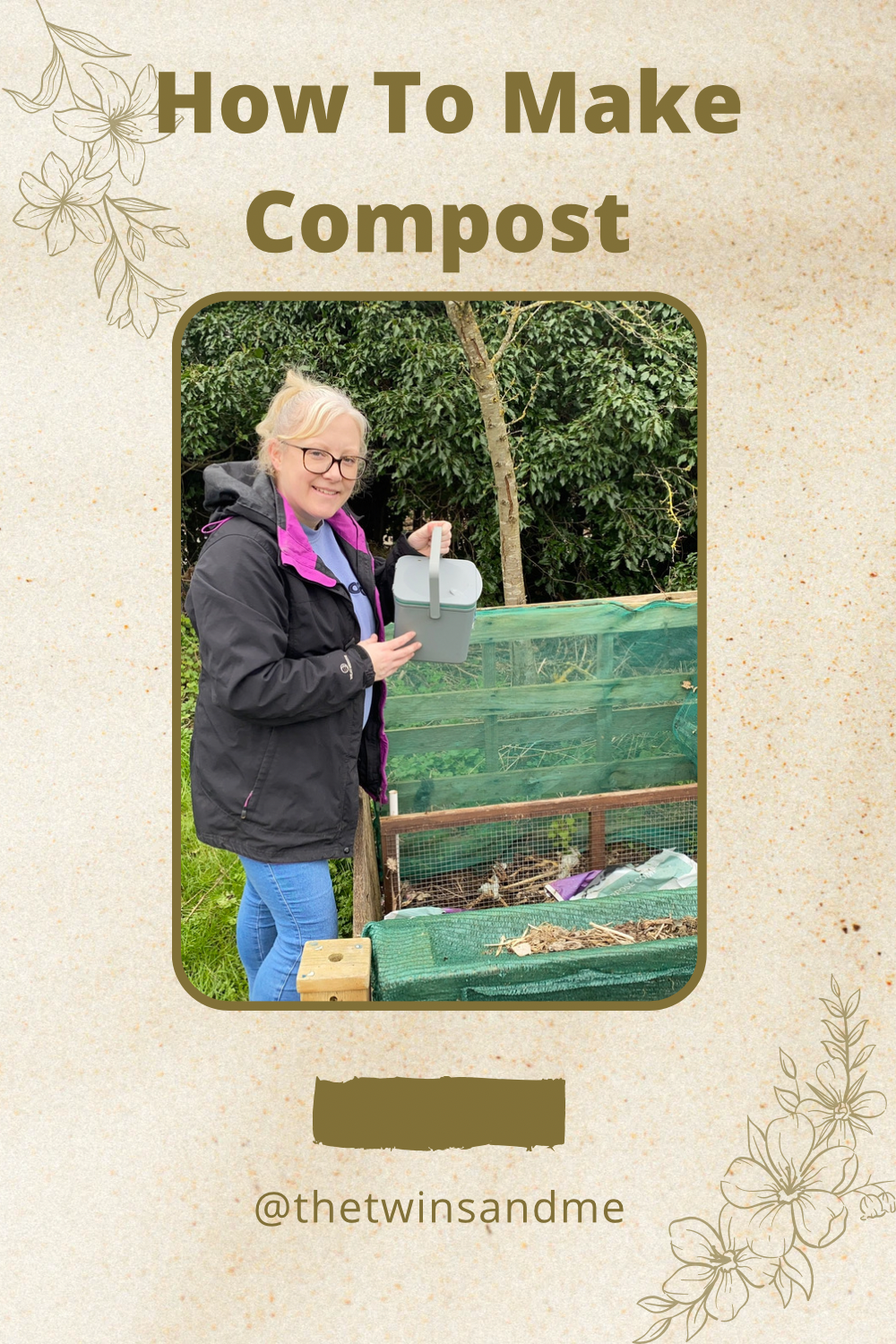I don’t know about you but we started to spend quite a lot of money on compost for our allotment. Every year we would purchase multiple bags of peat free compost, to fill our 30L pots and our new no-dig beds, until we thought “we really need to start making our own, to keep costs down”.

Why you should make your own compost!
- Great natural soil improver
- Compost heaps provide homes to wildlife
- Reduces the need for chemical fertilizers
- Reduces food to landfill waste
- Helps combat climate change
- Saves money
So many great reasons to make your own compost but what can you compost?
This is basically divided into green (Nitrogen materials) and brown (Carbon materials)
Green Materials
- Grass clippings
- Weeds – minus seed heads
- Kitchen peelings
- Fruit and veg scraps from the kitchen
- Discarded plants from the garden/allotment
- Manure – horse, goat, rabbit, chickens, cow, sheep etc
- Stale or left over food (not meat)
- Feathers
- Eggshells
- Coffee grounds
Brown Materials
- Cardboard
- Newspaper
- Egg boxes
- Dried leaves
- Straw
- Paper
- Toilet roll tubes
- Wood chips
- Sawdust
There are a few different types of compost bins, with the plastic ready built ones probably being the most common, particularly for smaller gardens.
We made our own ones from recycled pallets, as we wanted a few large ones and this worked out the most cost effective for us. We simply screwed 3 pallets together in a square shape and used a smaller piece of wood for the front to allow easier access and cover with a piece of tar palling, to help keep it moist but prevent it from becoming waterlogged.
The most simplest way to make your compost is to layer your green and brown materials in a ratio of roughly 2:1. 2 parts green and one part brown.
I usually add some newspaper and toilet roll tubes in whenever I add a larger amount of green materials.
We turn our compost heap every few weeks to a month, which helps to speed up the process as it allows more oxygen in.
With this process you should end up with some usable compost in 6-12 months.
Amy